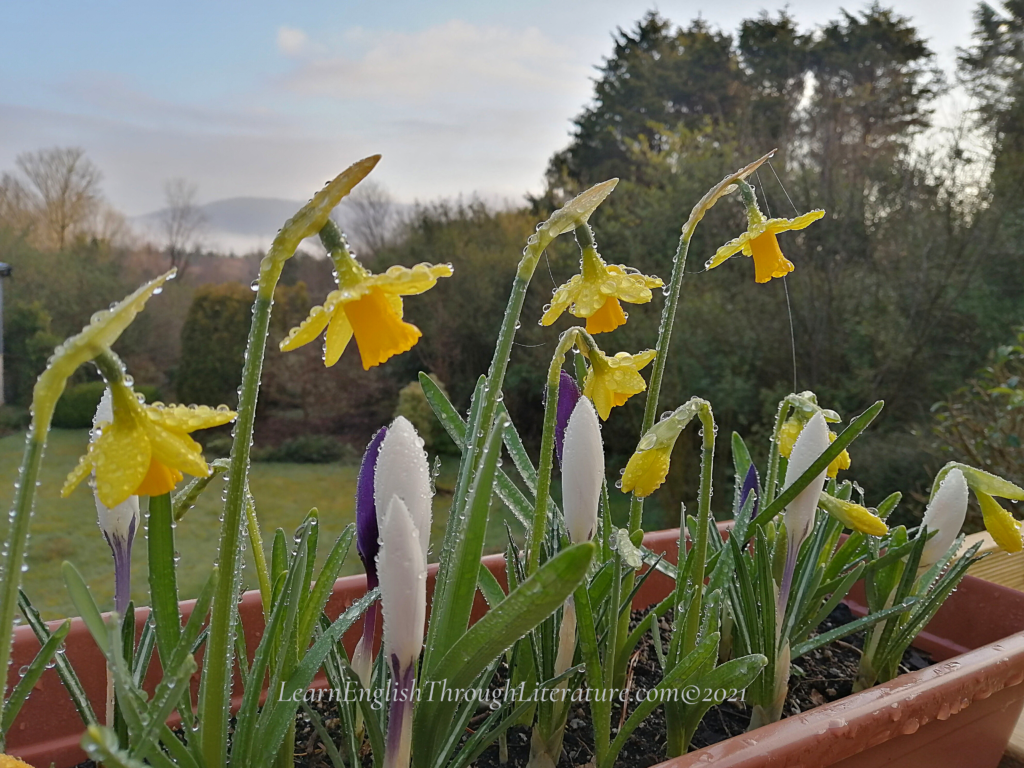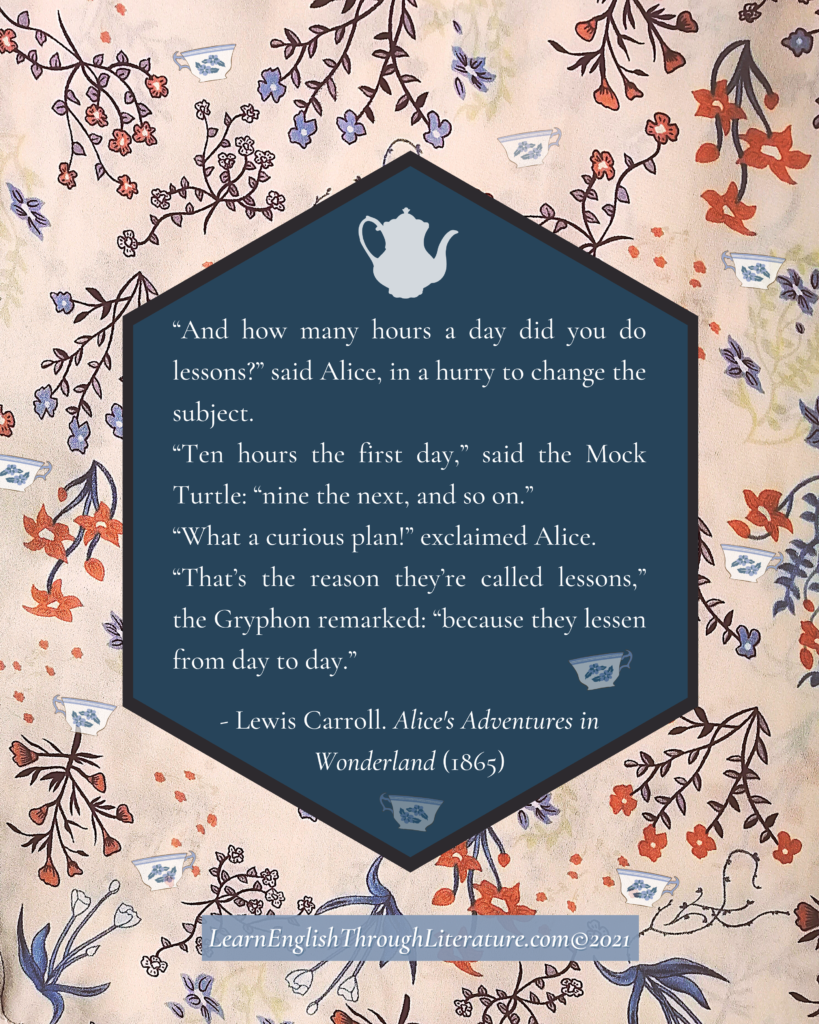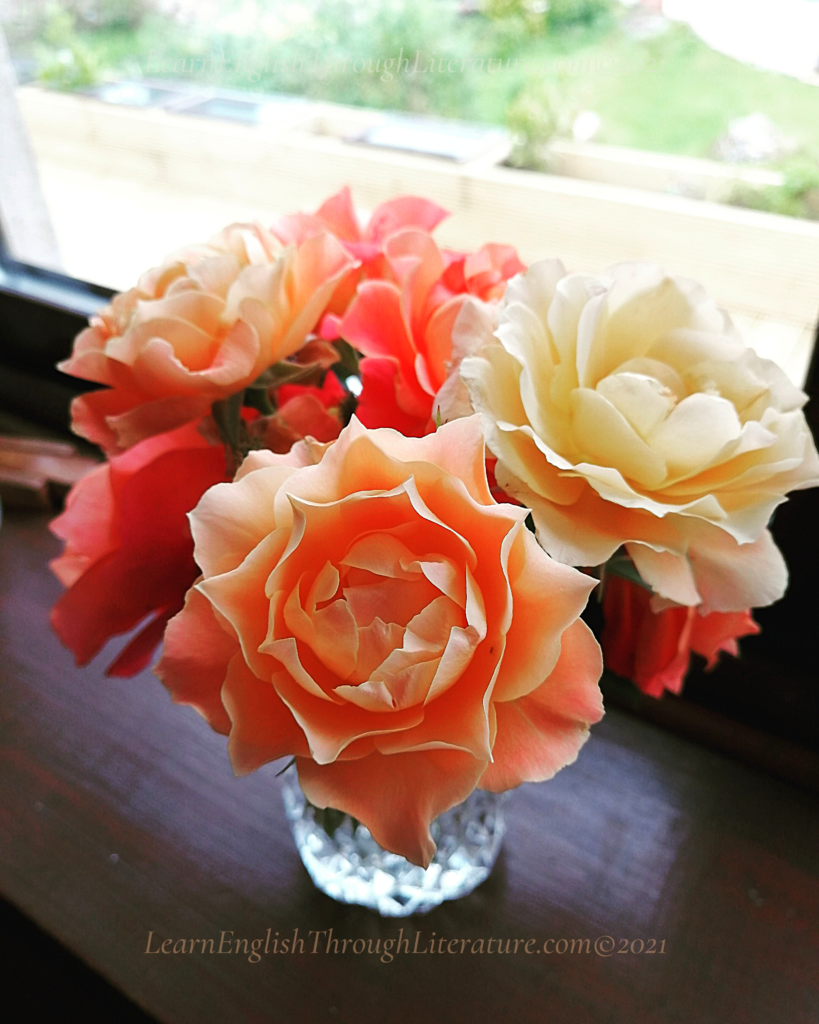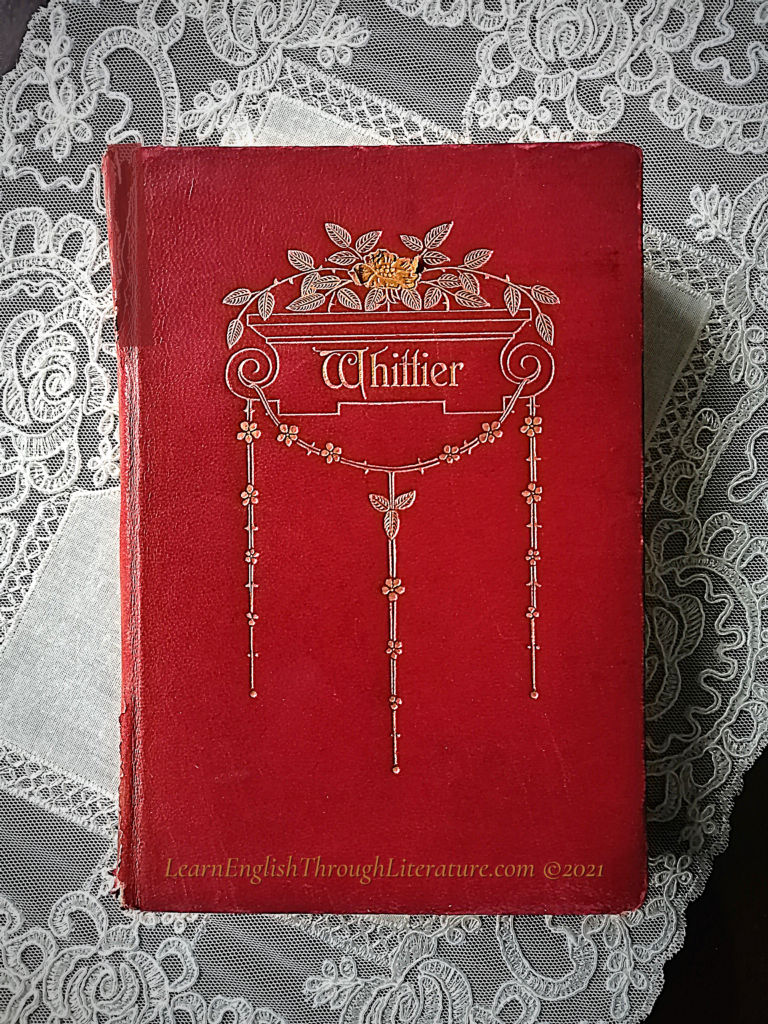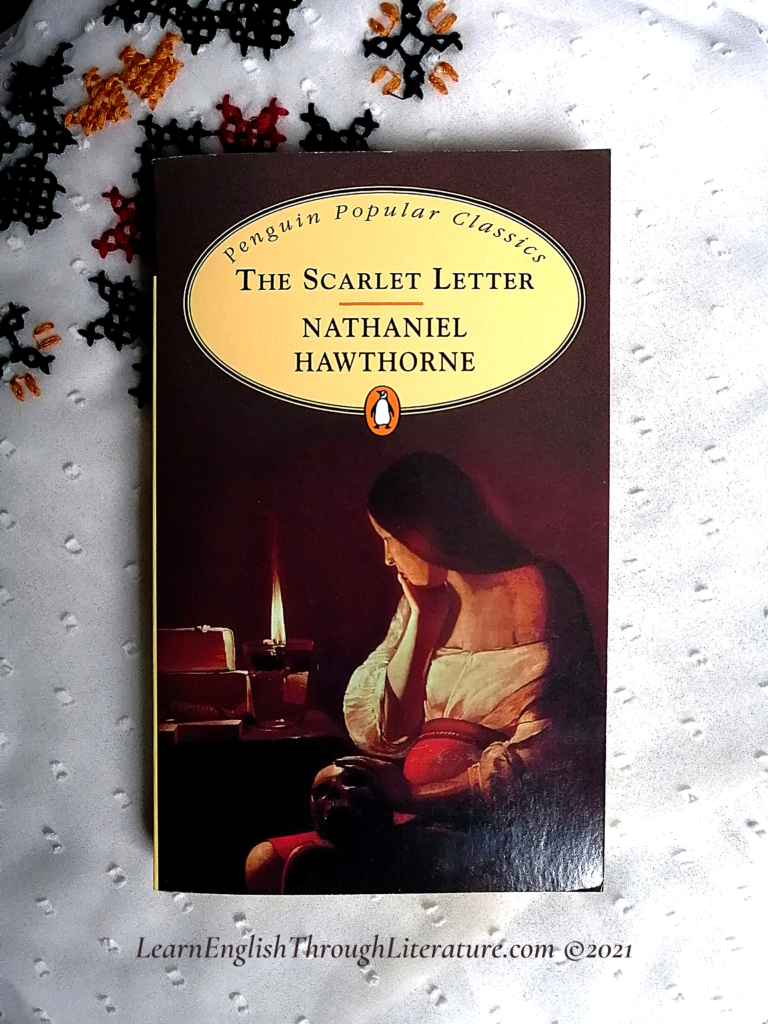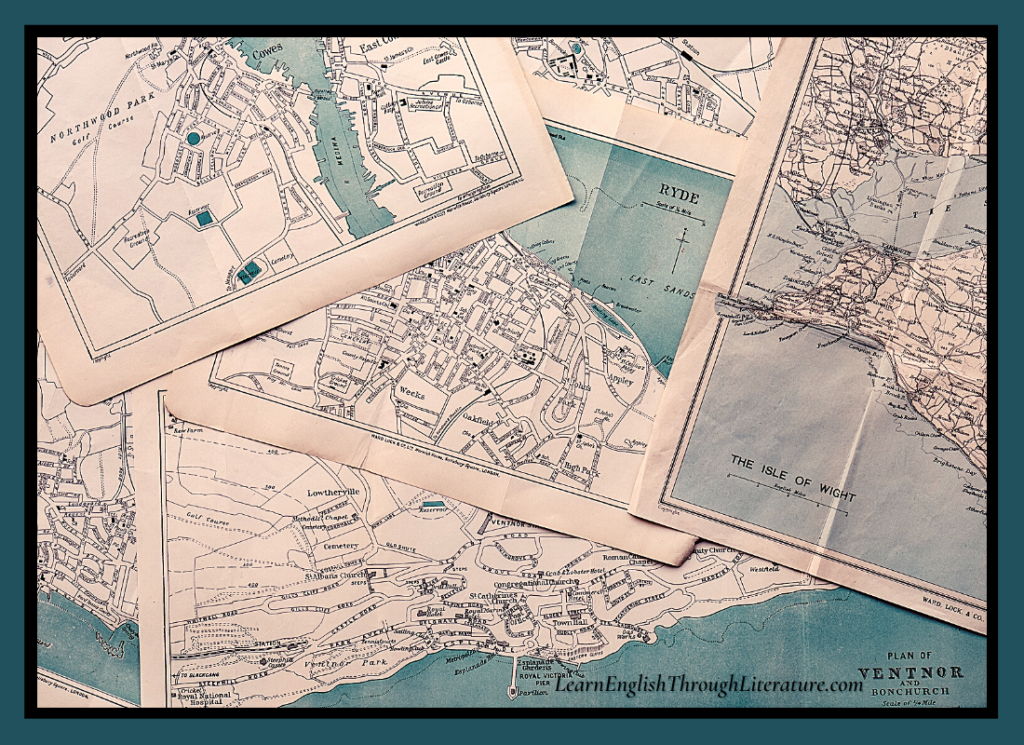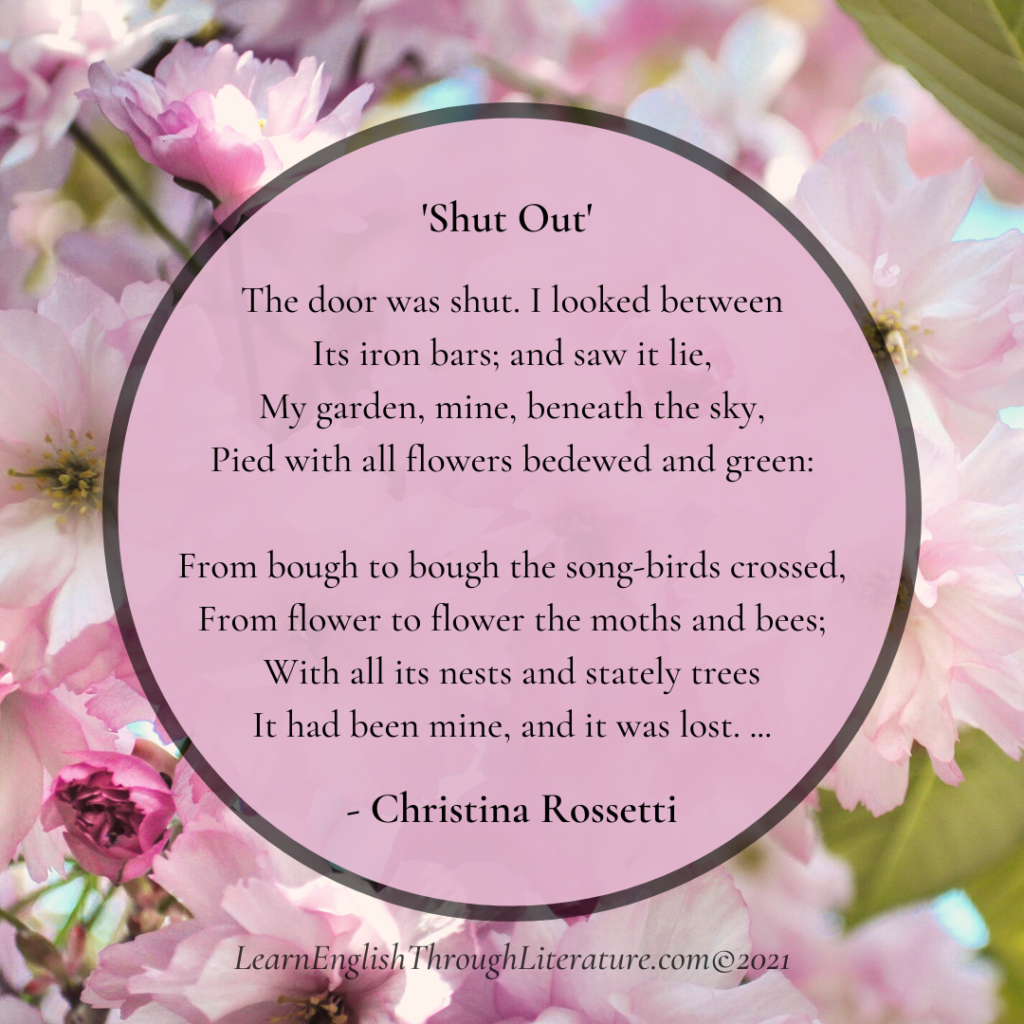Mini-Lesson Monday, Lesson #200 (Part 1): Different Ways of Seeing: Wordsworth’s ‘The Daffodils’
🏵️ The first of March – also known as ‘St David’s Day’, Wales’ national day, when the Welsh like to wear small daffodils (or leeks) as a national symbol. That, together with our own daffodils, crocuses, and snowdrops has brought to mind one of the most famous poems in the English language, William Wordsworth’s ‘The […]

